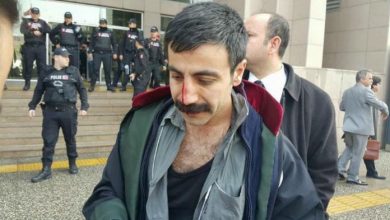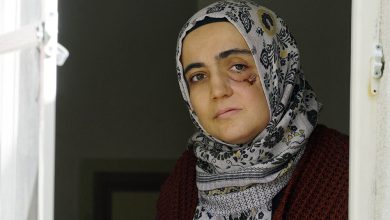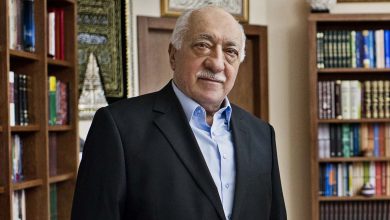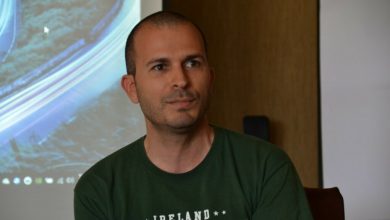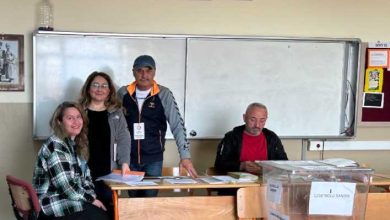Nearly a quarter of a million websites blocked in Turkey in five years – report
The report also evaluated data from transparency reports of global social media and Internet platforms, such as Twitter, Facebook, Google, WordPress.

Turkey has blocked a total of 245,825 websites and domains between 2014 and 2018, according to a study released in June by Freedom of Expression Association (IFOD).
IFOD’s analysis report is on Blocked Websites and Contents of News and Social Media in Turkey.
In 2018 alone, a total of 54,903 websites publishing 3,306 news articles were blocked by the Turkish authorities, according to the “BlockedWeb 2018 Report” which was compiled by Bilgi University academic Yaman Akdeniz and Ozan Guven, an activist and researcher.
Sozcu, a daily critical of Turkish President Recep Tayyip Erdogan, was listed “the most blocked news site in 2018″ with 204 news articles being blocked. Cumhuriyet and Hurriyet followed with 196 and 190 news articles respectively, the report said.
The BlockedWeb report provided figures regarding numerous legal actions taken against social media accounts based on examinations by Turkey’s interior ministry. A total of 26,996 social media accounts were examined by the ministry, and of those, 13,544 accounts were subjected to legal action.
The report also evaluated data from transparency reports of global social media and Internet platforms, such as Twitter, Facebook, Google, WordPress.
In 2018, Turkey ranks first, by a massive margin, in requests for content removal which were forwarded to Twitter, totaling 12,897, followed by Russia with 4,613 and Japan with 850 requests.
Similarly, Turkey sent 50,275 content removal requests to Google during the period of 2014-2018, among them, 36,965 requests originated from Turkish court rulings.
“As we are living in the 13th year of Law no. 5651 [Turkey’s Internet bill], the state has been actively maintaining its complex Internet censorship mechanism [stronger] than ever before,” the report commented.
The law, which was enacted in 2007 to protect children and prevent access to illegal and harmful Internet content, has repeatedly been amended over the years to broaden the scope for censorship.
Further, in 2018, the ruling Justice and Development Party (AKP) government expanded the powers of the Radio and Television Supreme Council (RTUK), Turkish watchdog, to include overseeing online content providers, which amounted to digital censorship.
Digital world under AKP control in Turkey
“Censorship of websites and online social media has reached unprecedented levels and the authorities are now trying to bring online video services under control,” declared Reporters Without Borders (RSF), a Paris-based international media rights group.
The AKP move came, critics say, after the online world – websites, blogs, social media, etc. – emerged as the center of opposition in Turkey, notably in the aftermath of the failed coup in 2016.
Blocking a website totally due to content has become frequent in Turkey. Access to online platforms including Twitter, Facebook, Instagram, YouTube, and WhatsApp have been blocked in Turkey many times, usually after incidents such as mass demonstrations, terrorist attacks, or coup plots.
“It is against the decisions of both Turkey’s Constitutional Court (AYM) and the ECtHR to block the whole website due to an image, a too harsh measure,” Akdeniz said, speaking to journo.com.tr.
Akdeniz, together with Kerem Altiparmak, a human rights activist and a law professor, has sued the AKP government over more than a hundred court decisions for blocking certain websites in the country.
Only a few of their petitions have been successful. The pair, for instance, took the bans on Twitter and YouTube to the AYM and the ECtHR. The latter ruled that both bans were violating freedom of expression. Contrary to its routine, Ankara respected the ECtHR decision and lifted the bans.
In general, the Turkish authorities ignore the ECtHR verdicts, though the country is a signatory to the European Convention on Human Rights (ECHR), paying fines instead.
Akdeniz argued that it was important to take the government to court, even if the case is rejected, saying, “The government sees the Internet as its last battleground and the pressure will not cease any time soon. That’s why fighting censorship in court is very important.”
At the other end, the ban on Wikipedia has been in place for more than two years.
Since 2017, all language versions of the site have been inaccessible to Turkish IP addresses.
In April 2017, AKP blocked access to Wikipedia over two entries, one linking AKP to radical Islamist groups in Syria, and the other showing the 2016 coup as a state-sponsored plot. Turkey demands the entries be removed, while Wikipedia declines to take down the content.
In May, the Wikimedia Foundation filed an application before the European Court of Human Rights (ECtHR) in a bid to lift the blanket ban, arguing the ban is a violation of the fundamental right to freedom of expression as guaranteed by Article 10 of the European Convention.
The online encyclopedia can now be accessed in Turkey only through a Virtual Private Network (VPN), a service that protects private web traffic and hides one’s online actions.
Echoing Akdeniz, Sevket Uyanik from the Common Knowledge and Communication Association (TBID) emphasized the importance of being sensitive to and of fighting together against censorship.
“Our society has accepted censorship and auto-censorship as something normal, a really worrying situation. Instead of fighting against censorship, people are finding a way around it, with the help of VPN or other services, but that is not enough,” Uyanik told journo.com.tr.
Things were very different only a few years ago in 2011 when tens of thousands of people marched in Istanbul to protest a law introducing state control over the Internet, Uyanik said.
Source: ipa
